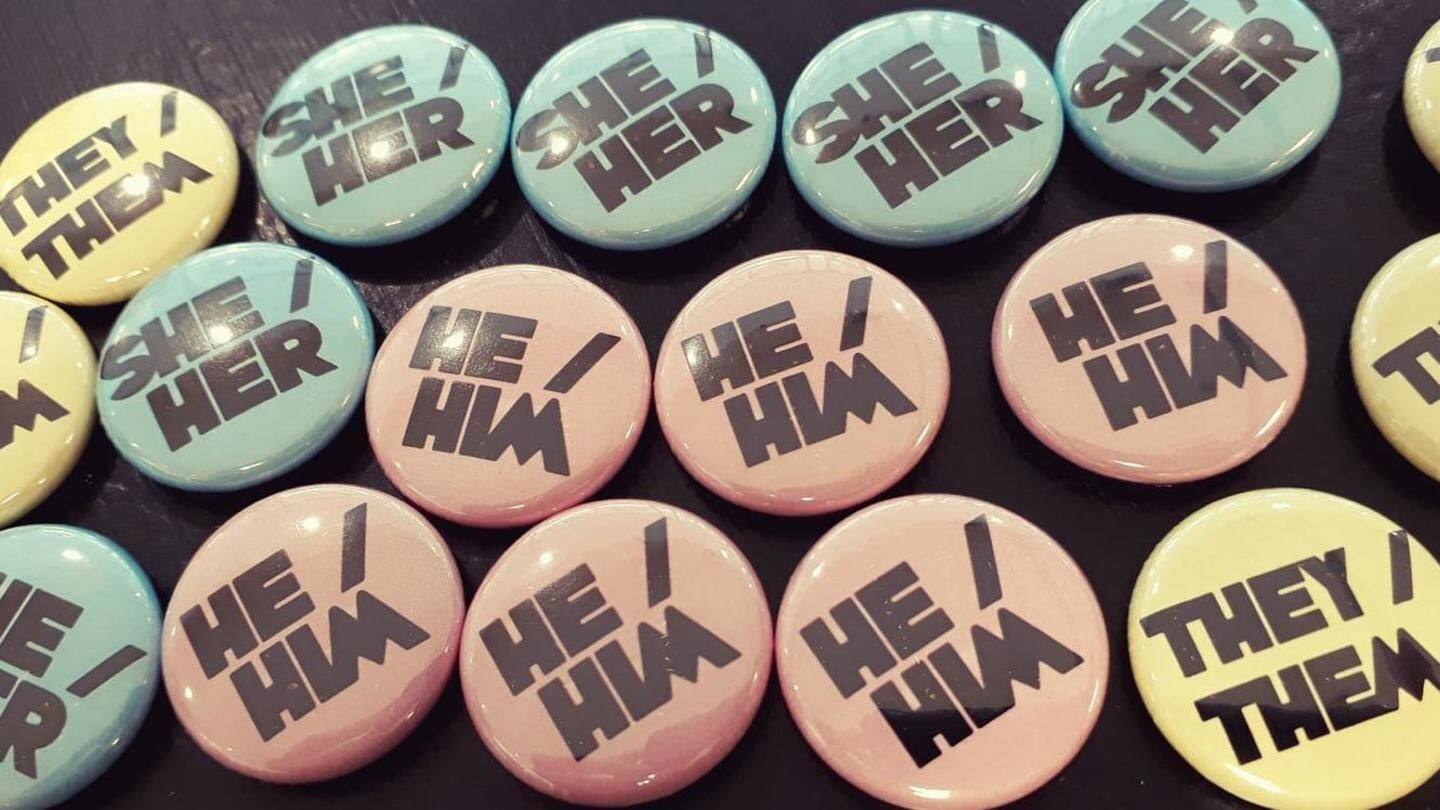
Scotland university brings pronoun badges; a step towards gender equality
What's the story
Scotland's Edinburgh University is set to hand out pronoun badges to freshers joining in a new term so they know whether to refer to each other as "he", "she" or "they". The move is intended to avoid any potential "misgendering" of non-binary or transgender students, who may display the physical attributes of one gender while associating more closely with another or none at all.
Information
Badges will be available throughout the 'Welcome Week'
Kai O'Doherty, the Vice-President for Welfare at the Edinburgh University Students' Association, announced that pronoun badges will be available throughout the "Welcome Week", which takes place before the official start of term next month.
Guide
A guide to pronouns has been published by students' union
The students' union also published a guide to pronouns, which explains why it is important to normalize the practice of sharing gender pronouns. "Many people assume that the pronouns they should use for an individual are obvious: people who look like men should be referred to as he/him, and people who look like women should be referred to as she/her," it said.
Assumptions
Guide explains how obvious assumptions of pronouns can be offensive
The guide explains that making these gender assumptions can be frustrating and harmful for transgender on non-binary students, who may, in fact, prefer to use gender-neutral pronouns, the Sunday Telegraph reported. The guide advises, "Saying you don't care which pronoun is used is offensive, as it suggests that trans folks are silly for requesting that their pronouns be respected."
Information
Pronoun badges are the latest form of linguistic etiquette
Pronoun badges are the latest form of linguistic etiquette being explored by leading British universities. Elsewhere, students and academics have been encouraged to sign their email with their names, titles, telephone numbers and whether they like to be known as "he/him", "she/her" or "they/them".